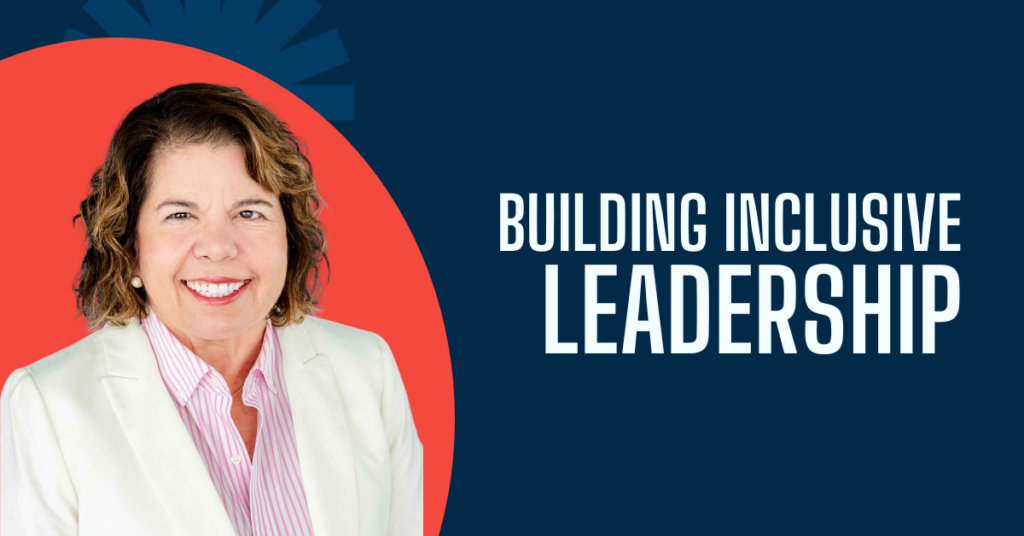As organizations navigate the complex business environment of 2025, inclusive leadership strategies have emerged as an essential catalyst for driving organizational success, innovation, and sustainable growth. As businesses navigate increasingly diverse and complex work environments, leaders must go beyond traditional management approaches to become truly inclusive and empathic leaders.
Effective inclusive leadership strategies are not just about recognizing diversity, but actively creating environments where every team member feels valued, heard, and empowered to contribute their unique perspectives. By implementing targeted approaches to become an inclusive leader, organizations can unlock unprecedented levels of innovation, engagement, and collective potential, transforming workplace culture from the inside out.

Understanding Inclusive Leadership Strategies in the Modern Workplace
In the dynamic landscape of leadership coaching for diversity, understanding inclusive leadership strategies has become crucial for organizational success. Building an inclusive workplace culture requires a sophisticated approach that goes beyond traditional management models, focusing on creating environments where every team member feels genuinely valued and empowered. Inclusive leadership strategies represent a transformative framework that enables leaders to recognize, respect, and leverage the unique perspectives and strengths of diverse talent.
By intentionally developing practices that promote equity, foster psychological safety, and celebrate individual differences, leaders can unlock unprecedented levels of innovation, collaboration, and organizational performance.
These strategies represent a profound paradigm shift in leadership philosophy, transforming traditional management approaches into adaptive, empathetic frameworks that recognize the interconnected and diverse nature of today’s global workforce.
The Evolution of Inclusive Leadership
Leadership models have radically evolved, moving from hierarchical, top-down structures to more collaborative, inclusive, and dynamic approaches that prioritize human potential and collective intelligence. Traditional top-down management models are giving way to more collaborative, empathetic approaches that recognize the unique value each team member brings. Inclusive leadership strategies are not just a trend but a critical business imperative that directly impacts organizational performance, employee satisfaction, and innovation.

Key Definitions and Importance
Inclusive leadership can be defined as a leadership approach that intentionally creates an environment where diverse talents feel respected, integrated, and empowered to contribute fully. This approach goes beyond mere representation, focusing on creating genuine belonging and psychological safety within teams.
Measuring the Impact of Inclusive Leadership
Research consistently demonstrates that inclusive leadership strategies yield tangible benefits. Organizations with truly inclusive cultures experience:
- Higher employee engagement rates
- Improved team innovation
- Better decision-making processes
- Increased employee retention
- Enhanced organizational reputation
By embracing these inclusive leadership strategies, leaders can transform their workplace culture, driving both human potential and business performance.
1: Cultivating Self-Awareness and Emotional Intelligence
Self-awareness and emotional intelligence form the bedrock of inclusive leadership. Leaders must commit to deep personal reflection, understanding their own biases, blind spots, and emotional triggers. By developing heightened emotional intelligence, leaders can more effectively recognize and mitigate unconscious biases, create more empathetic connections with team members, and model authentic, vulnerable leadership that encourages open communication and mutual understanding.
2. Implementing Comprehensive Diversity and Inclusion Training
Effective diversity and inclusion training goes beyond one-time workshops, instead creating ongoing, immersive learning experiences that challenge existing mindsets and provide practical tools for inclusive behavior. These comprehensive programs should include interactive scenarios, real-world case studies, and personalized feedback mechanisms that help leaders and team members develop genuine cultural competence, learn to recognize systemic barriers, and actively work to create more equitable workplace environments.
3. Creating Transparent and Equitable Decision-Making Processes
Transparent and equitable decision-making processes are critical for building trust and ensuring fair treatment across an organization. Leaders must develop clear, consistent frameworks that minimize individual biases, provide multiple channels for input, and ensure that selection, promotion, and resource allocation decisions are based on objective criteria. This approach involves establishing standardized evaluation metrics, creating diverse decision-making panels, and maintaining open communication about how and why key decisions are made.
4. Developing Mentorship and Sponsorship Programs
Mentorship and sponsorship programs are powerful mechanisms for promoting diversity and supporting career advancement for underrepresented groups. These programs should intentionally pair emerging talent with experienced leaders who can provide guidance, advocate for their professional growth, and help navigate organizational complexities. Strategic mentorship programs serve as powerful mechanisms for dismantling systemic barriers and creating equitable pathways for professional development and advancement for talented individuals across diverse backgrounds.
5. Fostering Psychological Safety in Teams
Psychological safety is the cornerstone of truly inclusive team environments. Effective leaders cultivate environments of psychological safety that empower team members to authentically express themselves, share bold ideas, and challenge existing norms without fear of negative consequences or professional repercussions. This involves establishing communication norms that prioritize respect, actively soliciting and valuing diverse perspectives, and responding to feedback and challenges with curiosity and openness rather than defensiveness.
Summary
In conclusion, adopting inclusive leadership strategies is no longer just a forward-thinking initiative but an essential approach to thriving in today’s diverse and interconnected business landscape. By embracing practices like emotional intelligence, diversity training, equitable decision-making, mentorship, and fostering psychological safety, leaders can create a culture where every individual feels valued and empowered. This transformation not only enhances innovation and collaboration but also drives sustainable growth and success. Inclusive leadership is the key to unlocking the full potential of your team and fostering a truly dynamic workplace.

